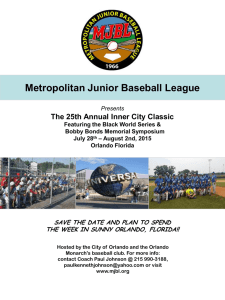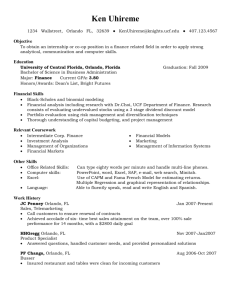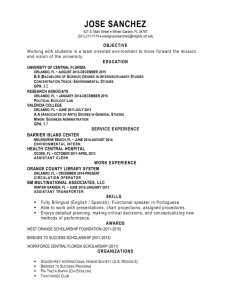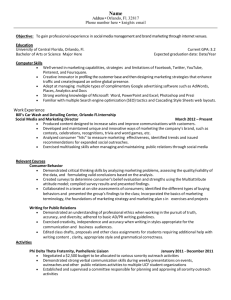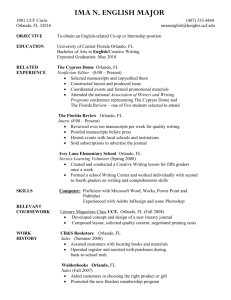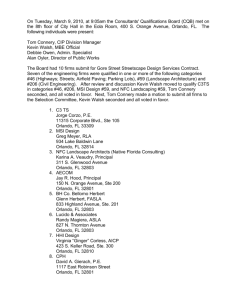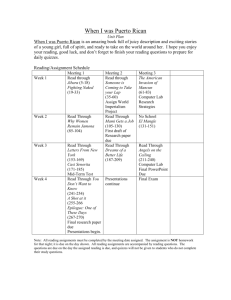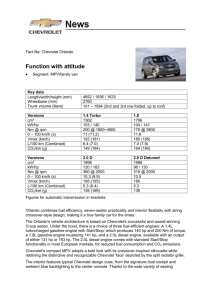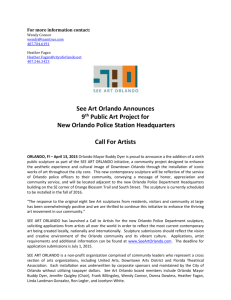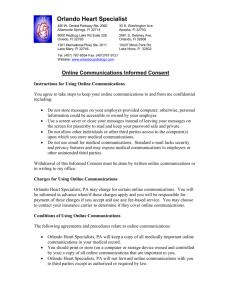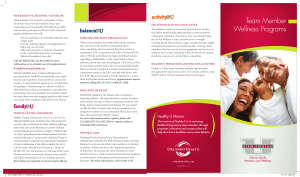After reviewing the reading materials and presentations in this
advertisement
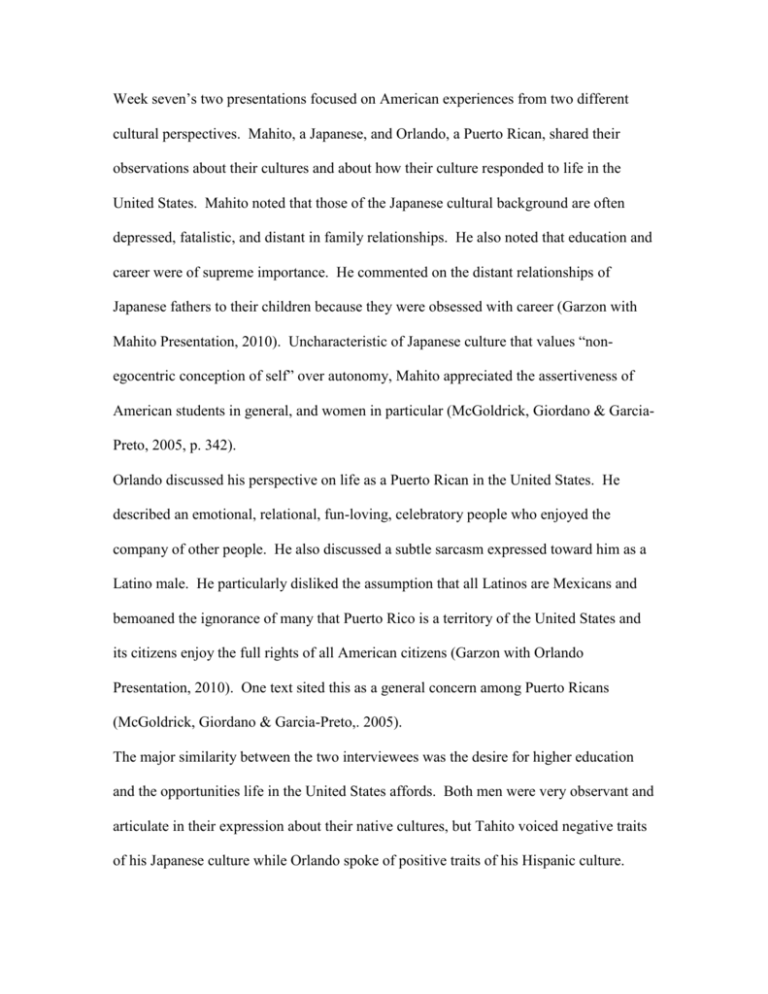
Week seven’s two presentations focused on American experiences from two different cultural perspectives. Mahito, a Japanese, and Orlando, a Puerto Rican, shared their observations about their cultures and about how their culture responded to life in the United States. Mahito noted that those of the Japanese cultural background are often depressed, fatalistic, and distant in family relationships. He also noted that education and career were of supreme importance. He commented on the distant relationships of Japanese fathers to their children because they were obsessed with career (Garzon with Mahito Presentation, 2010). Uncharacteristic of Japanese culture that values “nonegocentric conception of self” over autonomy, Mahito appreciated the assertiveness of American students in general, and women in particular (McGoldrick, Giordano & GarciaPreto, 2005, p. 342). Orlando discussed his perspective on life as a Puerto Rican in the United States. He described an emotional, relational, fun-loving, celebratory people who enjoyed the company of other people. He also discussed a subtle sarcasm expressed toward him as a Latino male. He particularly disliked the assumption that all Latinos are Mexicans and bemoaned the ignorance of many that Puerto Rico is a territory of the United States and its citizens enjoy the full rights of all American citizens (Garzon with Orlando Presentation, 2010). One text sited this as a general concern among Puerto Ricans (McGoldrick, Giordano & Garcia-Preto,. 2005). The major similarity between the two interviewees was the desire for higher education and the opportunities life in the United States affords. Both men were very observant and articulate in their expression about their native cultures, but Tahito voiced negative traits of his Japanese culture while Orlando spoke of positive traits of his Hispanic culture. Both men had a firm grasp of the English language. Neither Orlando nor Mahito felt intense racism. Orlando expressed concern about a subtle sarcasm he felt about his Hispanic heritage, while Tahito expressed no sensitivity to racism. The major difference between the two men was their approach to being interviewed. Orlando was very outgoing, talkative, and casual in his responses. He was quick to discuss his personal feelings. Tahito, on the other hand, was very formal and stiff in his responses. References Garzon, F.with Mahito. (2010). Presentation: An Asian Experience. Liberty University. Garzon, F.with Orlando. (2010). Presentation: A Hispanic Experience. Liberty University. McGoldrick, M., Giordano, J., & Garcia-Preto, N. (2005).Ethnicity and family therapy. New York: Guilford Press
